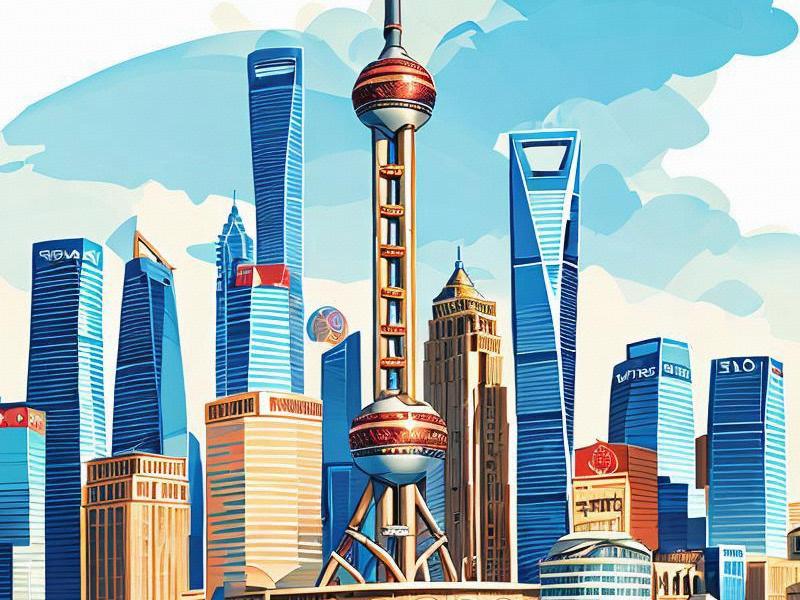Shanghai, often referred to as the "Pearl of the Orient," stands as a beacon of modernity and a testament to China's rapid urbanization. As the largest city in China and one of the world's most dynamic metropolises, Shanghai is a fascinating blend of history, culture, and cutting-edge innovation. This article delves into the multifaceted aspects of Shanghai, exploring its urban development, cultural diversity, and economic significance.

Shanghai's history dates back to the 11th century when it was a small fishing village. However, its transformation began in the 19th century with the establishment of the International Settlement and the French Concession. These foreign concessions brought about significant architectural and cultural influences, laying the foundation for Shanghai's cosmopolitan character.
The city's rapid urban development has been nothing short of remarkable. In the past few decades, Shanghai has undergone a massive transformation, emerging as a global financial hub. The iconic skyline, dominated by the Oriental Pearl Tower, the Jin Mao Tower, and the Shanghai Tower, symbolizes the city's economic prowess and architectural innovation. The Bund, a historic waterfront area, showcases the juxtaposition of colonial-era buildings and modern skyscrapers, reflecting the city's rich history and dynamic present.
Shanghai's urban planning is a model of efficiency and sustainability. The city has invested heavily in public transportation infrastructure, including its extensive metro system, which is one of the busiest in the world. The Maglev train, connecting Pudong International Airport to the city center, is a testament to Shanghai's commitment to cutting-edge technology and environmental consciousness. Additionally, the city has implemented green initiatives to combat pollution and promote sustainable development.
Cultural diversity is another defining feature of Shanghai. As a former international port, the city has been a melting pot of cultures, attracting people from all over the world. This cultural fusion is evident in the city's architecture, cuisine, and arts scene. The French Concession, with its charming cobblestone streets and European-style buildings, offers a glimpse into the city's colonial past. Similarly, the Yu Garden, a classical Chinese garden, provides a serene escape from the bustling urban life.
爱上海最新论坛 Shanghai's culinary scene is a delightful mix of traditional Chinese dishes and international flavors. From the famous xiaolongbao (soup dumplings) in Nanxiang to the upscale dining experiences in the Pudong district, the city offers something for every palate. The vibrant night markets, such as the Shiliupu Night Market, are a feast for the senses, showcasing a wide array of street food and local delicacies.
The arts and culture scene in Shanghai is thriving, with numerous museums, galleries, and theaters. The Shanghai Museum, renowned for its extensive collection of Chinese art, attracts millions of visitors each year. The city's contemporary art scene is equally vibrant, with institutions like the Power Station of Art and the M50 Creative Park providing platforms for emerging artists. The annual Shanghai International Film Festival is a major event that highlights the city's commitment to the arts.
Economically, Shanghai is a powerhouse, serving as the financial and commercial center of China. The city is home to the Shanghai Stock Exchange, one of the largest in the world, and hosts numerous multinational corporations. Pudong, a former rural area, has been transformed into a modern financial district, symbolizing Shanghai's economic growth and global influence.
The development of Pudong is a prime example of Shanghai's urban planning and economic strategy. In the early 1990s, the Chinese government launched the Pudong New Area project, aiming to transform the region into a global financial hub. Today, Pudong boasts a skyline of modern skyscrapers, including the iconic Oriental Pearl Tower and the Shanghai Tower, which is the tallest building in China and the second-tallest in the world.
上海喝茶服务vx
Shanghai's economic success is not limited to finance; the city is also a hub for technology and innovation. The Zhangjiang Hi-Tech Park is home to numerous high-tech companies and research institutions, fostering a vibrant tech ecosystem. The city's commitment to innovation is further demonstrated by its initiatives in artificial intelligence, biotechnology, and green energy.
Despite its rapid development, Shanghai has managed to preserve its cultural heritage and historical landmarks. The Yu Garden, built in the Ming Dynasty, is a testament to the city's rich history and architectural heritage. The Shanghai Old Town, with its narrow streets and traditional houses, offers a glimpse into the city's past.
The city's cultural festivals and events further highlight its commitment to preserving and celebrating its heritage. The Shanghai International Arts Festival, held annually, features a wide range of performances, including opera, dance, and theater. The Dragon Boat Festival, celebrated with great enthusiasm, showcases the city's deep-rooted traditions and cultural identity.
上海贵族宝贝sh1314 Shanghai's education system is another area of excellence, attracting students from all over the world. The city is home to prestigious universities such as Fudan University and Tongji University, which are known for their academic rigor and research capabilities. The influx of international students has contributed to the city's cultural diversity and global outlook.
The city's commitment to sustainability is evident in its efforts to combat pollution and promote environmental consciousness. Shanghai has implemented various green initiatives, including the construction of eco-friendly buildings and the promotion of public transportation. The city's green spaces, such as the Century Park and the Shanghai Botanical Garden, provide residents and visitors with opportunities to connect with nature.
Shanghai's vibrant metropolis status is not without its challenges. The rapid urbanization has led to issues such as traffic congestion and housing shortages. However, the city's government has been proactive in addressing these challenges through innovative solutions and sustainable development strategies.
In conclusion, Shanghai is a dynamic and multifaceted city that exemplifies China's rapid urbanization and economic growth. Its rich history, cultural diversity, and commitment to innovation make it a unique and fascinating destination. As Shanghai continues to evolve, it remains a symbol of China's aspirations and a beacon of progress in the 21st century.